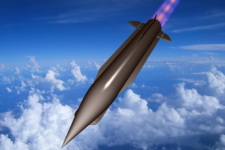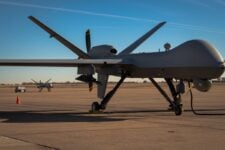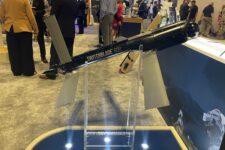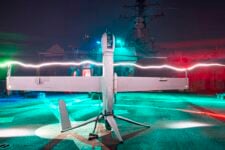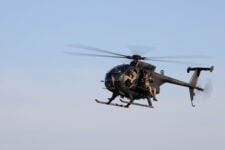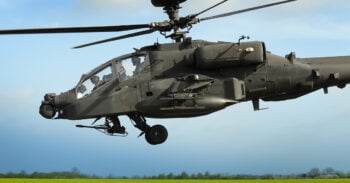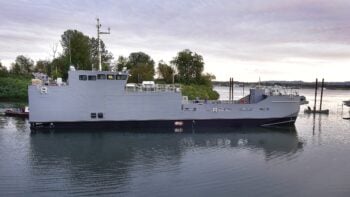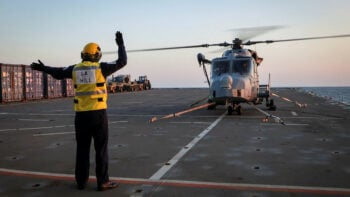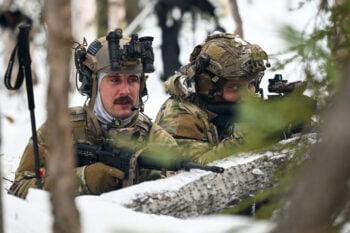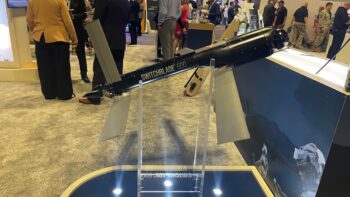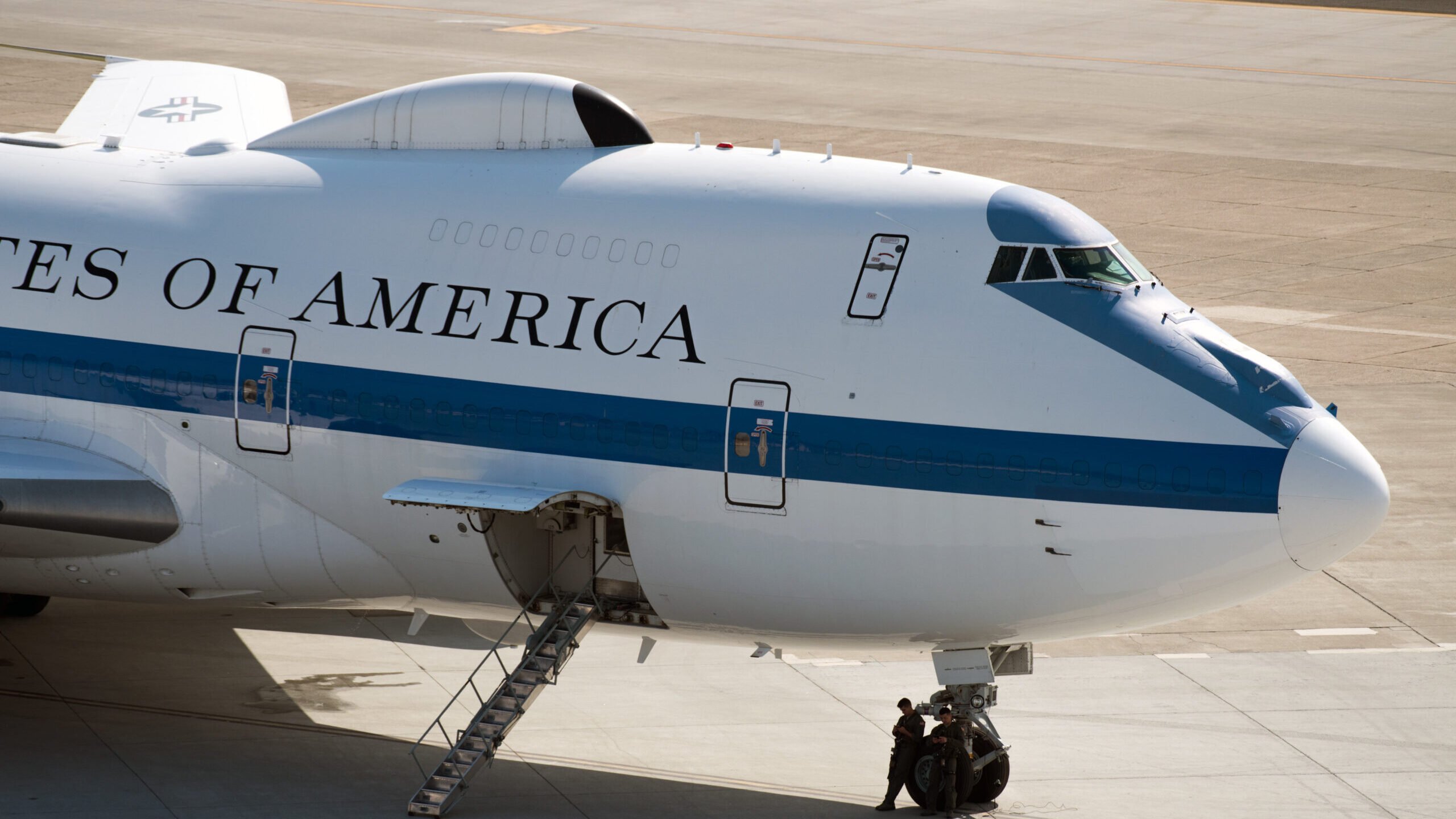
An E-4B aircraft sits on the tarmac at Travis Air Force Base, Calif., Sep. 11, 2017. (U.S. Air Force photo by Louis Briscese)
SIMI VALLEY, Calif. — Boeing is no longer in the running to build the Air Force’s E-4B Nightwatch “Doomsday” plane replacement, leaving Sierra Nevada Corporation (SNC) as the only known remaining competitor.
In a statement to Breaking Defense on Friday, a company spokesperson confirmed that the aerospace giant’s bid is no longer under consideration by the Air Force. Reuters first reported Boeing’s elimination.
“We are approaching all new contract opportunities with added discipline to ensure we can meet our commitments and support the long-term health of our business. We remain confident our [E-4B replacement] approach is the most comprehensive, technically mature and lowest-risk solution for the customer and Boeing,” the Boeing spokesperson said.
“Our proposal is based on 60 years of military commercial derivative aircraft knowledge and experience including the design, development, and sustainment of the E-4B Nightwatch, which currently serves the national security command and control mission,” they added.
According to Reuters, Boeing and the Air Force could not reach an agreement on data rights or contract terms. Boeing executives have refused to sign any new fixed-price development contracts after the company has suffered billions of dollars in losses in recent years. In the third quarter of 2023 alone, Boeing logged nearly $1 billion in charges for its defense division.
In a statement, an Air Force spokesperson said “We cannot discuss an active source selection and detailed program information is classified in order to protect our investment in this critical capability.”
Boeing is the builder of the current E-4B, a modified 747, which serves as the Defense Secretary’s primary mode of transportation but can also act as an airborne command center in the event of a national emergency like a nuclear attack. The aircraft is also known as the Survivable Airborne Operations Center, or SAOC, and four of the jets are currently in the service’s inventory.
The Air Force’s fiscal 2024 budget rollout earlier this year showed a massive jump in funding for the SAOC replacement effort, with approximately $889 million for the upcoming fiscal year alone as the service moves toward a contract award. The award is expected in 2024, with SNC now the only public competitor still vying to win it.
Boeing isn’t alone in its opposition to fixed-price development contracts. L3Harris Chief Executive Officer Chris Kubasik, for example, has vowed that his company will refuse to sign contracts with such terms.
Negotiations between industry and the government on data rights are often sticking points for programs, which the government usually seeks to enable service-led maintenance. Boeing’s sustainment arm that services both commercial and defense contracts, called Boeing Global Services, is typically a bright spot in the company’s earnings, posting a profit of $784 million in Q3 of this year.
“We’re having great engagements with our customers. When I say great, yeah, sometimes it’s painful,” Steve Nordlund, the head of Boeing’s Air Dominance division, told Breaking Defense in an interview earlier this year.
“And sometimes we don’t have the answer right off the top of our head. But we’re digging in to try to figure out how we can get them what they want, which is being able to operate.”
Updated 12/1/23 at 7:50 pm ET with comment from the Air Force.
TAI exec claims 20 Turkish KAAN fighters to be delivered in 2028
Temel Kotil, TAI’s general manager, claimed that the domestically-produced Turkish jet will outperform the F-35 Joint Strike Fighter.


